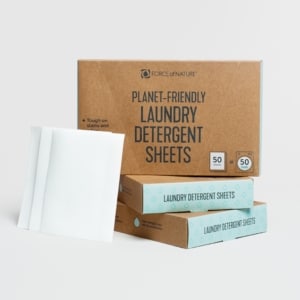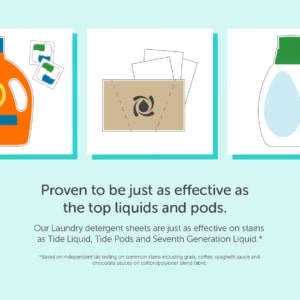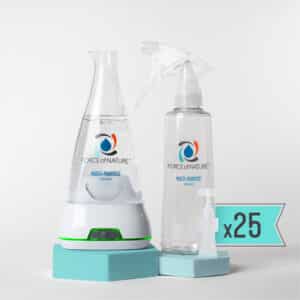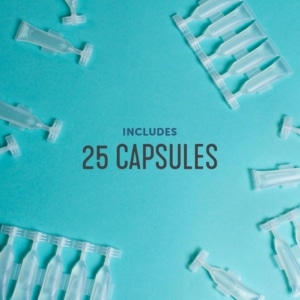
What is Hypochlorous Acid Used For?
If you’re here, chances are you’re already a bit curious about Force of Nature and the powerhouse ingredient inside it: Hypochlorous acid (or HOCl). You may already know it’s found in your body, but did you know it’s also being used in hospitals, eye care, veterinary medicine, and even skincare?
In this post, we’re diving into the surprising real-world uses of hypochlorous acid—and why this non-toxic germ-fighter is making waves in both homes and healthcare settings.
First, What Exactly Is Hypochlorous Acid?
Hypochlorous acid is nature’s oldest antibacterial, a substance your white blood cells produce to keep you healthy and fight viruses and bacteria.
Through a technology called electrolyzed water, HOCl can be replicated outside the body using just salt, water, vinegar and electricity. The change in chemistry creates a powerful, toxin-free antibacterial that’s EPA-registered and kills 99.9% of bacteria and viruses without harmful fumes, residues, or scary ingredient lists. The reason hypochlorous acid is so effective at killing germs is that it breaks down the cell walls of pathogens.
Learn more about how hypochlorous acid works.
Common & Surprising Uses for Hypochlorous Acid (HOCl)
Hospitals, ICUs & Medical Clinics
HOCl is used in medical disinfecting and has been for decades. Force of Nature is an EPA registered Hospital disinfectant proven to kill 99.9% of bacteria and viruses, including Norovirus, Salmonella, Influenza A, Staph, MRSA, Listeria & Pseudomonas Aeruginosa. The EPA has registered Force of Nature for sanitizing and disinfecting hospitals, ICUs, medical clinics, and more. Medical professionals rely on HOCl-based disinfectants to disinfect high-risk environments without toxic fumes that can trigger respiratory issues.
Wound Care
Hypochlorous acid has a long history in wound care. It’s been used since WWI to clean and protect wounds. It fights infection while being non-irritating to tissue, making it ideal for cuts, burns, and chronic wounds. It promotes wound healing by reducing inflammation, preventing infections, and supporting the body’s natural healing processes. See what the science says about HOCl and wound care.
Eye Care and Ophthalmology
HOCl is gentle enough to be used on your eyes when it’s in the right concentration. Eye care products use hypochlorous acid to manage conditions like blepharitis and dry eye by reducing bacteria without harming healthy skin. Our eyes are made from delicate tissue, so the combination of a gentle yet potent antimicrobial agent helps fight infection and reduce inflammation.
Veterinary Applications
From itchy skin to infected wounds, HOCl is used by vets to treat both small and large animals. It kills bacteria, viruses and fungi, and helps support healing, without the need for harsh topicals. It’s especially helpful for pets with allergies or chronic dermatitis. Common dermatological issues for animals, like Pruritis (chronic itching), can be caused by allergies, parasites, and infections and the accompanying scratching and licking can cause red, inflamed areas that can lead to painful bacteria infections. HOCl soothes the skin, reduces pain, and helps reduce factors that allow for bacteria growth.
Dermatology and Skin Care
HOCl is used by dermatologists to:
Treat acne-causing bacteria
Calm eczema and rosacea
Accelerate healing post-laser or microneedling
Help with maskne and irritation
It’s even earned certification from SkinSAFE, Mayo Clinic’s allergy rating system, as 100% skin-safe and suitable for sensitive skin.
Dermatologists are harnessing the power of HOCl to support our skin by fighting bacteria (a cause of acne), to heal wounds faster, and to combat inflammation that comes with conditions like eczema and psoriasis. Learn more about the safety of hypochlorous acid for skin here.
Fighting Viruses Like COVID-19
HOCl is included on EPA List N, the EPA’s List of Disinfectants for Use Against SARS-CoV-2, the cause of COVID-19. Force of Nature is EPA-registered as a hospital disinfectant, giving you peace of mind at home, in classrooms, and in workplaces.
Your Questions About Hypochlorous Acid Uses, Answered
What is hypochlorous acid used for?
Is hypochlorous acid safe for disinfecting?
Can I use hypochlorous acid for pets or babies?
Does hypochlorous acid kill COVID-19?
Why HOCl Is Different from Other Disinfectants
Most disinfectants on the market rely on bleach, quats, or other chemicals that:
Trigger asthma and skin irritation
Leave behind toxic residues that require rinsing
Hypochlorous acid, on the other hand, is:
Toxin-free and non-irritating
Eco-friendly (breaks down into salt and water)
Safe for cleaning food surfaces, baby toys, and pet bowls
Gentle enough for people with asthma or skin sensitivities
See how hypochlorous acid compares to bleach here.
Bring the Power of HOCl Home
At Force of Nature, we’ve taken the industrial-strength power of hypochlorous acid and made it accessible for everyday life. With our small countertop appliance, you can create a powerful, EPA-registered disinfectant right at home using just tap water, salt, and vinegar in our little appliance.
It’s cleaning that’s gentle enough for the people (and pets!) you love most—and effective enough for hospitals.
See how Force of Nature works or shop for your Force of Nature starter kit.



